The Waqf Amendment Act 2025 directly undermines community autonomy, weakens minority rights, and disturbs the constitutional balance of democracy.
– Iqra Hasan, Member of Parliament from Kairana, Uttar Pradesh
Ernakulam: “The Waqf (Amendment) Act 2025 directly undermines community autonomy, weakens minority rights, and disturbs the constitutional balance of our democracy,” said Iqra Hasan, Member of Parliament from Kairana, Uttar Pradesh, while delivering the keynote address at a protest gathering organised by various Muslim Women organisations under the aegis of All India Muslim Personal Law Board with the slogan ‘Save Waqf, Save Constitution’ at Ernakulam Town Hall here Saturday.
Also watch another video of the conference here
The lawmaker opined, “Waqf properties have historically been created by the community to fund education, healthcare, orphanages, dargahs, masjids, and social welfare. This has been one of the oldest and most enduring models of community-led public good in our country. For centuries, the Waqf system has supported lakhs of Indians, especially the marginalised, without dependence on the state.
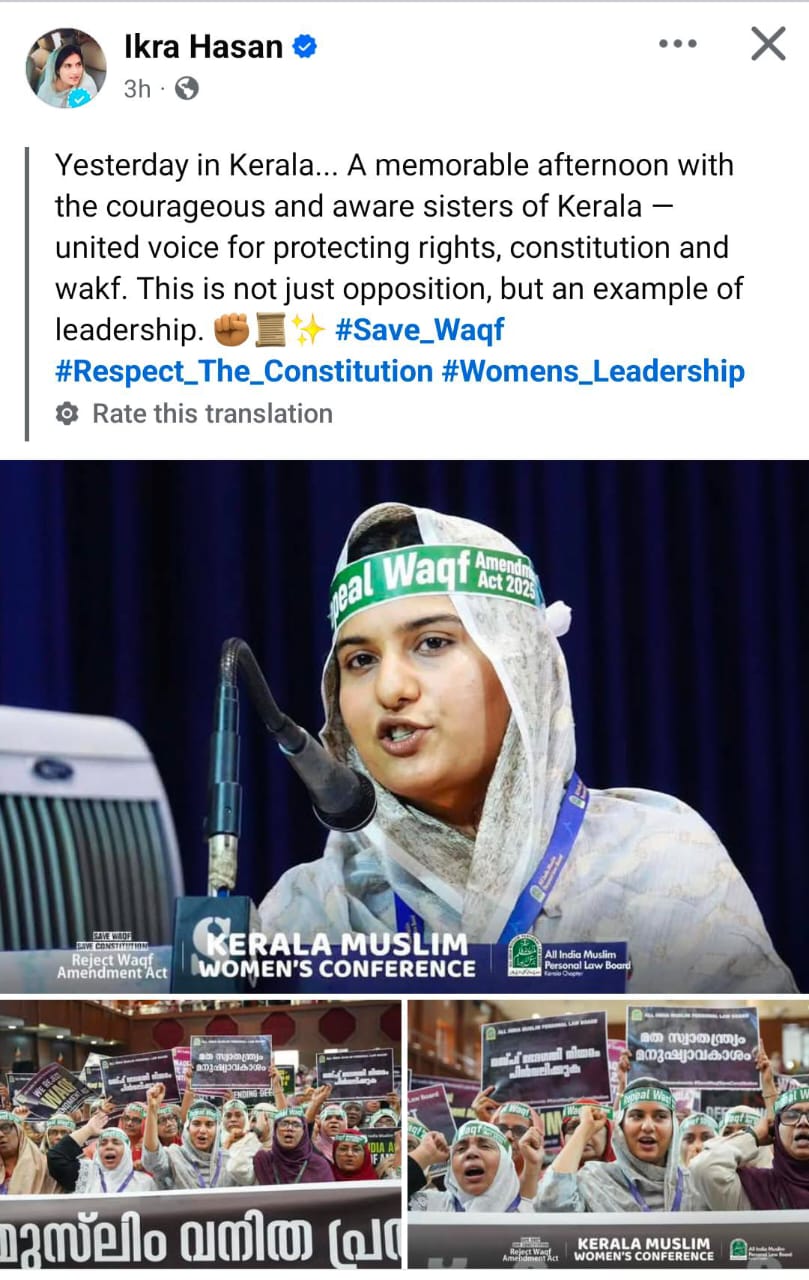 “But the new amendment hands over unprecedented powers to the central government to manage, oversee, and even dispose of Waqf properties. It takes away the self-reliance and replaces it with top-down political interference. It disregards the wisdom, history, and self-governance of the community. This is not reform, this is control. And control without consultation is not governance, it is overreach. It violates Article 26 of our Constitution, which guarantees every religious denomination the right to manage its own affairs in matters of religion and its associated institutions. If Waqf lands can be taken over today, tomorrow it could be Christian charitable trusts, Sikh Gurdwara properties, or any other religious endowment. This is not just a Muslim issue, this is an Indian issue. An issue of preserving the secular soul of our Republic.”
“But the new amendment hands over unprecedented powers to the central government to manage, oversee, and even dispose of Waqf properties. It takes away the self-reliance and replaces it with top-down political interference. It disregards the wisdom, history, and self-governance of the community. This is not reform, this is control. And control without consultation is not governance, it is overreach. It violates Article 26 of our Constitution, which guarantees every religious denomination the right to manage its own affairs in matters of religion and its associated institutions. If Waqf lands can be taken over today, tomorrow it could be Christian charitable trusts, Sikh Gurdwara properties, or any other religious endowment. This is not just a Muslim issue, this is an Indian issue. An issue of preserving the secular soul of our Republic.”
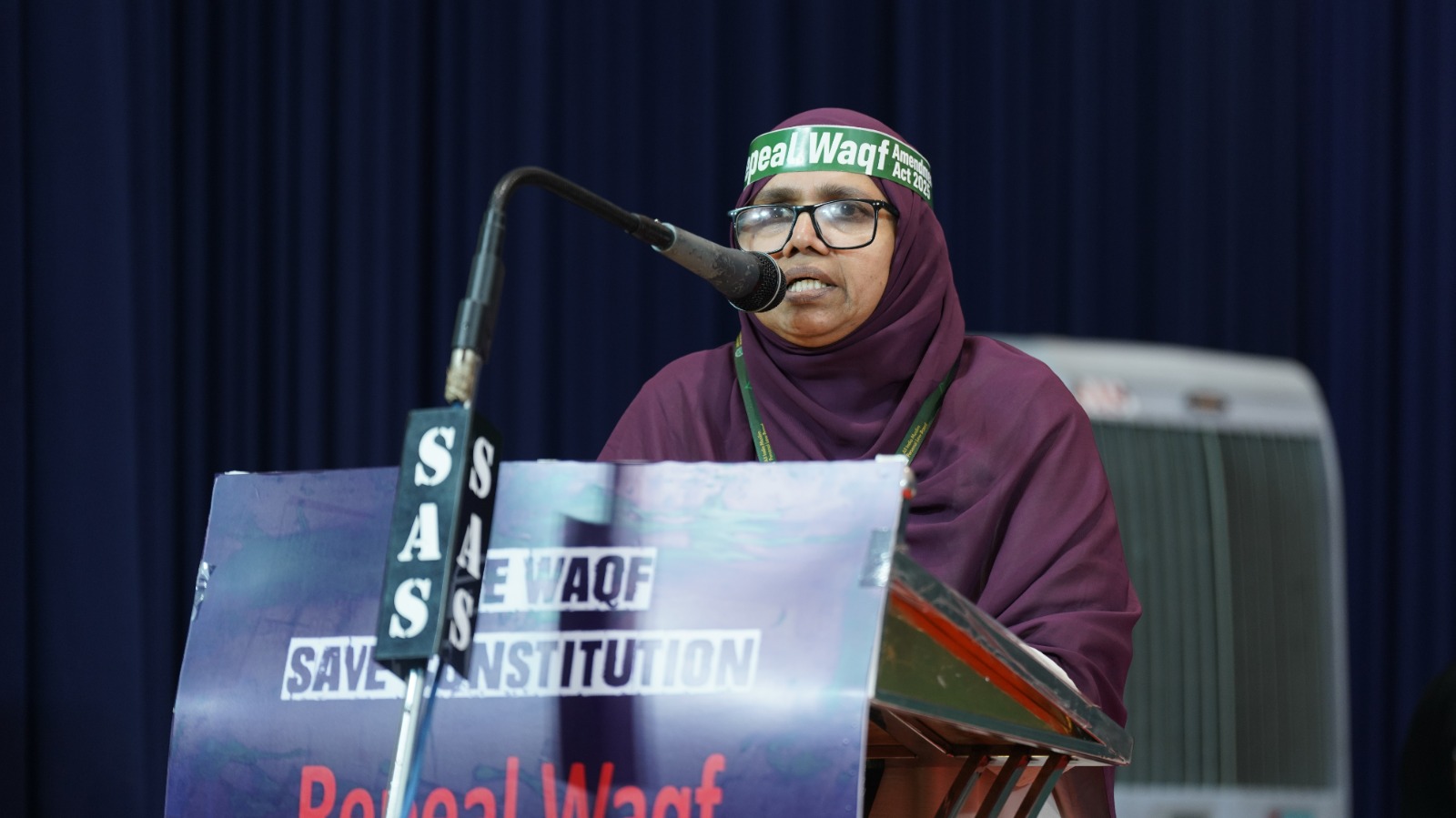 She further said, “It is assumed that land, law, and governance are distant from women’s lives. But that assumption has never applied to Muslim women. And in this, Muslim women are not silent spectators, Muslim women are stakeholders. We are beneficiaries, contributors, and leaders within our Waqf ecosystem. We have run madrassas, women’s shelters, and community kitchens all through the Waqf ecosystem. The erosion of Waqf institutions is an erosion of our space, our voice, and our agency. This government, while claiming to champion “women empowerment,” is dismantling institutions that allow women-led community welfare.”
She further said, “It is assumed that land, law, and governance are distant from women’s lives. But that assumption has never applied to Muslim women. And in this, Muslim women are not silent spectators, Muslim women are stakeholders. We are beneficiaries, contributors, and leaders within our Waqf ecosystem. We have run madrassas, women’s shelters, and community kitchens all through the Waqf ecosystem. The erosion of Waqf institutions is an erosion of our space, our voice, and our agency. This government, while claiming to champion “women empowerment,” is dismantling institutions that allow women-led community welfare.”
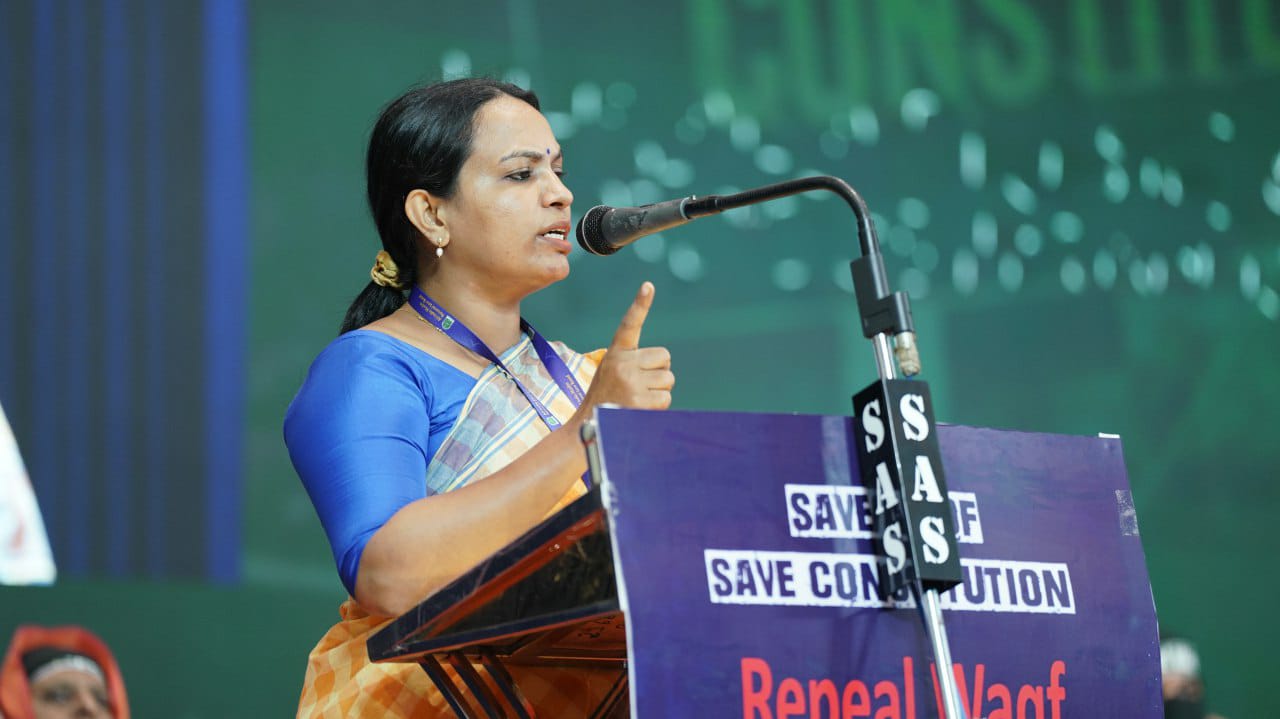 She also said, “This Is a Constitutional Crisis. This is not just about land. This is about rights. It is about dignity. It is about the limits of government power. And it is about the future of constitutional India. By pushing this law through, the government has bypassed democratic consultation, undermined the autonomy of minorities, and disrupted the balance between Centre and State. This is not policy, this is overreach cloaked in legislation.”
She also said, “This Is a Constitutional Crisis. This is not just about land. This is about rights. It is about dignity. It is about the limits of government power. And it is about the future of constitutional India. By pushing this law through, the government has bypassed democratic consultation, undermined the autonomy of minorities, and disrupted the balance between Centre and State. This is not policy, this is overreach cloaked in legislation.”
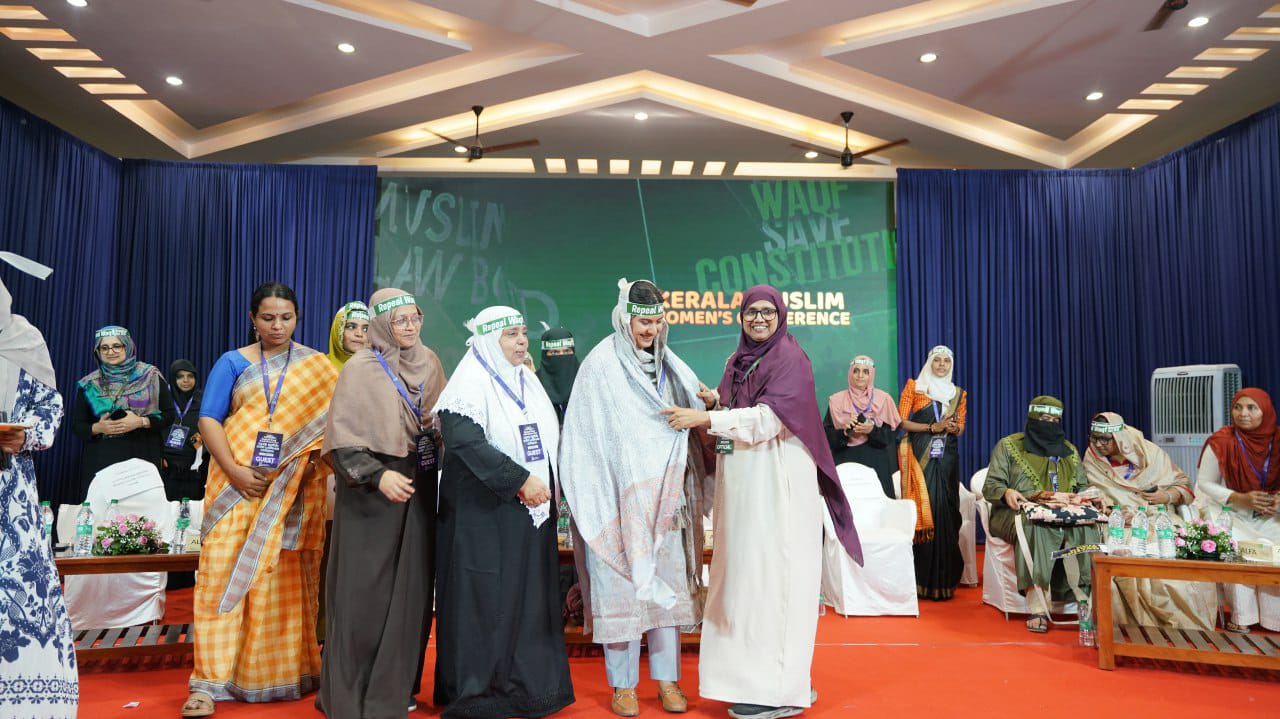 The gathering was marked by the presence of eminent personalities from the socio, cultural and political fields. All India Muslim Personal Law Board Executive committee member Rahamathunnissa A. presided over the gathering. Adv. Jaleesa Sultana, the convenor of AIMPLB, concluded. Fathima Muzaffar – National President IUML Women’s Wing, Dr. Soya Joseph – State General Secretary Youth Congress, Dr. Quddusa Sultana – Professor at Deccan College of Engineering, Sajida PTP – State President Jamaat-e-Islami Hind Kerala Women’s Wing, Salma Anwariya – State President MGM, VA Fayiza – State President Women Justice Movement, Adv. Kulsum – Vanitha League State Secretary, Adv. Fareeda Ansari – State Legal Cell Convenor WINGS, Irshana – State General Secretary Women India Movement, Rasiya K – Secretary MSS EKM, Mubashira M – State Secretary GIO, Hajara KA – Secretariat Member IGM and Dr. Simi Ameer addressed the gathering.
The gathering was marked by the presence of eminent personalities from the socio, cultural and political fields. All India Muslim Personal Law Board Executive committee member Rahamathunnissa A. presided over the gathering. Adv. Jaleesa Sultana, the convenor of AIMPLB, concluded. Fathima Muzaffar – National President IUML Women’s Wing, Dr. Soya Joseph – State General Secretary Youth Congress, Dr. Quddusa Sultana – Professor at Deccan College of Engineering, Sajida PTP – State President Jamaat-e-Islami Hind Kerala Women’s Wing, Salma Anwariya – State President MGM, VA Fayiza – State President Women Justice Movement, Adv. Kulsum – Vanitha League State Secretary, Adv. Fareeda Ansari – State Legal Cell Convenor WINGS, Irshana – State General Secretary Women India Movement, Rasiya K – Secretary MSS EKM, Mubashira M – State Secretary GIO, Hajara KA – Secretariat Member IGM and Dr. Simi Ameer addressed the gathering.
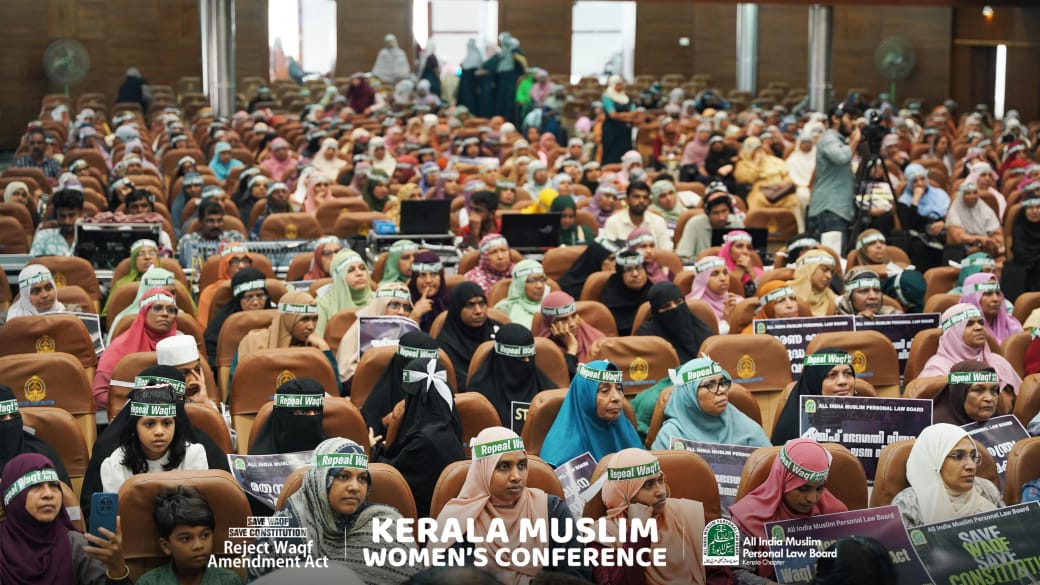 The speakers expressed concerns over the adverse effects of the act and brought out the double stand of the government. They demanded nothing less than the repeal of the Waqf Act 2025, restoration of the autonomy of State Waqf Boards, protection of minority rights as guaranteed under Articles 26, 29, and 30 of the Constitution and community consultation before any amendment is made to religious endowment laws. They expressed concerns over the welfare of the society, especially the protection of people’s faith, customs and rituals which undermines the idea of a secular India.
The speakers expressed concerns over the adverse effects of the act and brought out the double stand of the government. They demanded nothing less than the repeal of the Waqf Act 2025, restoration of the autonomy of State Waqf Boards, protection of minority rights as guaranteed under Articles 26, 29, and 30 of the Constitution and community consultation before any amendment is made to religious endowment laws. They expressed concerns over the welfare of the society, especially the protection of people’s faith, customs and rituals which undermines the idea of a secular India.
Shajitha Noushad, the convener of the organising committee welcomed the gathering and Khadija Rahman, the state coordinator proposed the vote of thanks.



